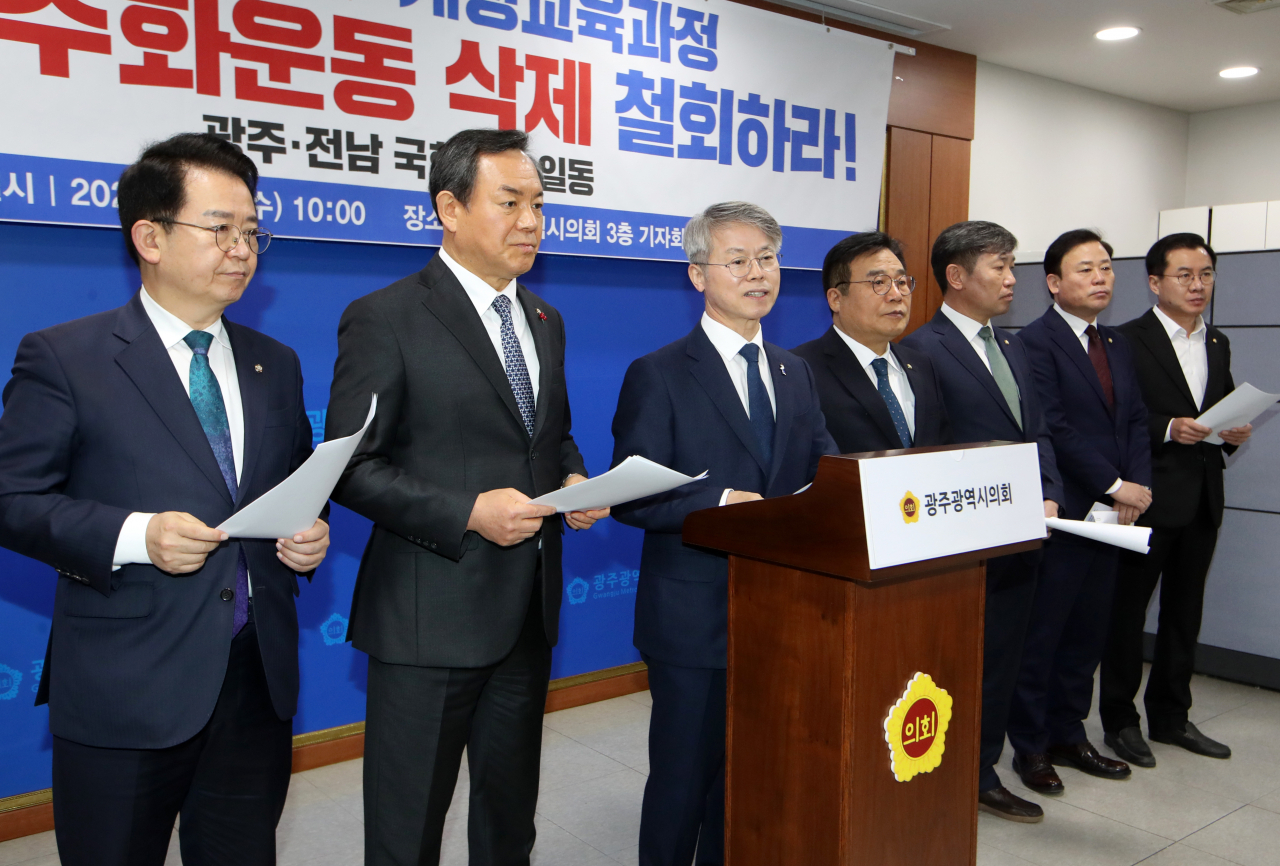Ministry vows to add Gwangju Uprising in textbooks as alleged filtering backfires
By Park Jun-heePublished : Jan. 4, 2023 - 18:46

South Korea’s Education Ministry said Wednesday it would make sure that major historical events, including the Gwangju Uprising, are reflected in new textbooks to be published in 2025. The announcement came a day after opposition lawmakers raised the allegation that the democratization movement against the military government in 1980 was intentionally taken out of the ministry's guidelines for textbook writers.
Education Minister Lee Ju-ho said via a press release that the ministry will describe major historical events including the May 18 Democracy Movement in textbooks so that students can learn the spirit of the movement.
After Rep. Kang Deuk-gu of the main opposition Democratic Party of Korea and independent lawmaker Min Hyung-bae raised the allegation, politicians from Gwangju and the North and South Jeolla provinces accused the Yoon Suk-yeol government of ideological bias, saying the guideline that had no description of the democracy movement was “backpedaling from democracy.”
“This is condemning the May Democratic Movement and insulting the citizens of Gwangju. We will try to stop any attempt that undermines the spirit of it or any act that shakes the foundation of democracy,” they said at a press conference held at the Gwangju Metropolitan Council on Wednesday.
The same day, 58 lawmakers from the opposition bloc, including the Democratic Party, condemned the ministry for "filtering" such content.
“Today’s democracy was built on dedication and sacrifice, and the May 18 Democratic Movement is a symbol of Asia’s democracy,” they said.
While denying the allegation of intentionally omitting the description of the events of the Democratic Uprising, the ministry said the revised guideline, finalized last year, was intended to give greater autonomy to textbook writers.
The ministry added that the research team for developing the curriculum for history was formed in December 2021, before President Yoon took office in May 2022.
South Korea’s revised curriculum undergoes major revisions typically every two to four years to reflect rising demands in education, emerging needs of a changing society and new academic disciplines.
Currently, students are educated under the 2018 curriculum plan, where key historical events like the April Revolution, the June 10 democratic protest and the May Democratic Movement appear in textbooks.









![[Kim Seong-kon] Democracy and the future of South Korea](http://res.heraldm.com/phpwas/restmb_idxmake.php?idx=644&simg=/content/image/2024/04/16/20240416050802_0.jpg&u=)








![[KH Explains] Hyundai's full hybrid edge to pay off amid slow transition to pure EVs](http://res.heraldm.com/phpwas/restmb_idxmake.php?idx=652&simg=/content/image/2024/04/18/20240418050645_0.jpg&u=20240418181020)

![[Today’s K-pop] Zico drops snippet of collaboration with Jennie](http://res.heraldm.com/phpwas/restmb_idxmake.php?idx=642&simg=/content/image/2024/04/18/20240418050702_0.jpg&u=)